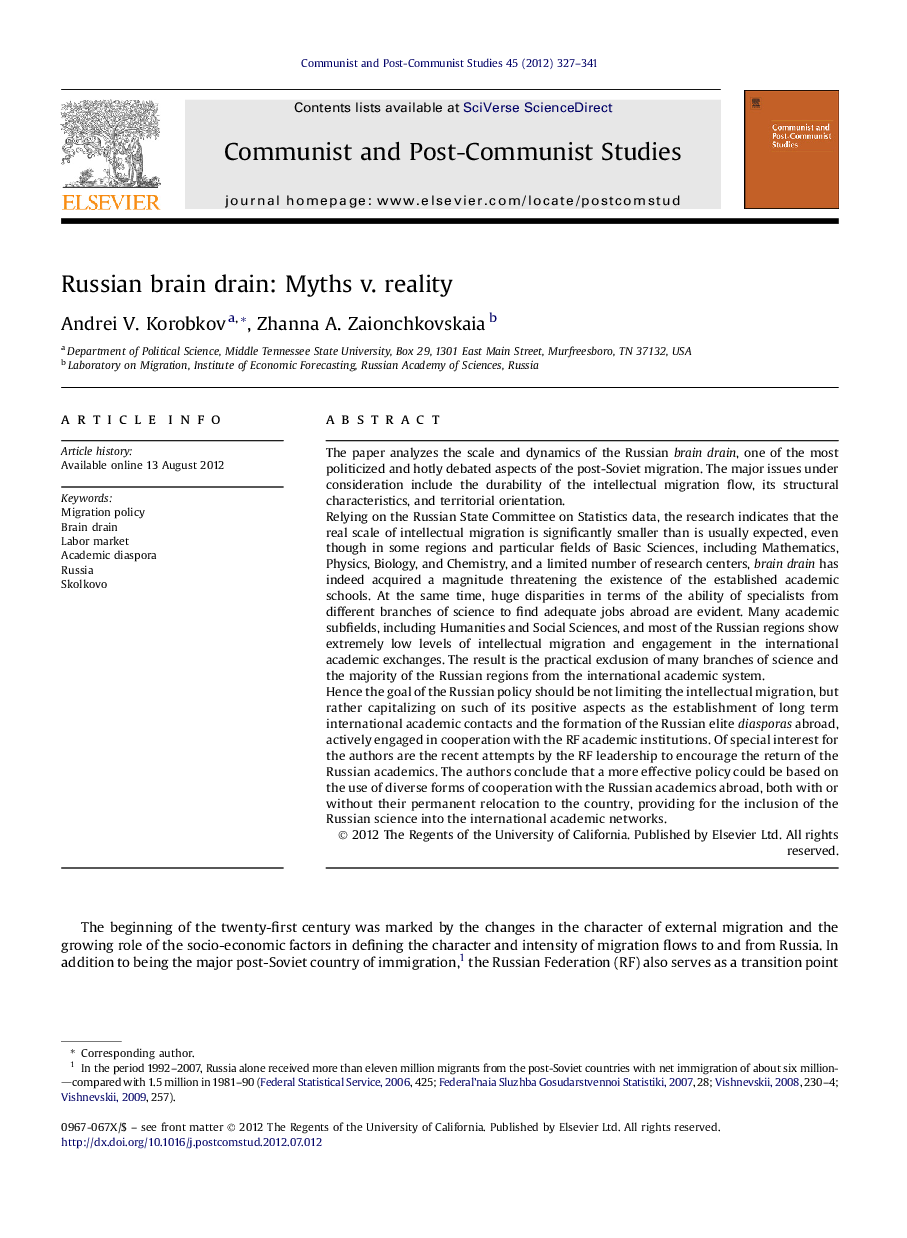| کد مقاله | کد نشریه | سال انتشار | مقاله انگلیسی | نسخه تمام متن |
|---|---|---|---|---|
| 1046648 | 1484381 | 2012 | 15 صفحه PDF | دانلود رایگان |

The paper analyzes the scale and dynamics of the Russian brain drain, one of the most politicized and hotly debated aspects of the post-Soviet migration. The major issues under consideration include the durability of the intellectual migration flow, its structural characteristics, and territorial orientation.Relying on the Russian State Committee on Statistics data, the research indicates that the real scale of intellectual migration is significantly smaller than is usually expected, even though in some regions and particular fields of Basic Sciences, including Mathematics, Physics, Biology, and Chemistry, and a limited number of research centers, brain drain has indeed acquired a magnitude threatening the existence of the established academic schools. At the same time, huge disparities in terms of the ability of specialists from different branches of science to find adequate jobs abroad are evident. Many academic subfields, including Humanities and Social Sciences, and most of the Russian regions show extremely low levels of intellectual migration and engagement in the international academic exchanges. The result is the practical exclusion of many branches of science and the majority of the Russian regions from the international academic system.Hence the goal of the Russian policy should be not limiting the intellectual migration, but rather capitalizing on such of its positive aspects as the establishment of long term international academic contacts and the formation of the Russian elite diasporas abroad, actively engaged in cooperation with the RF academic institutions. Of special interest for the authors are the recent attempts by the RF leadership to encourage the return of the Russian academics. The authors conclude that a more effective policy could be based on the use of diverse forms of cooperation with the Russian academics abroad, both with or without their permanent relocation to the country, providing for the inclusion of the Russian science into the international academic networks.
Journal: Communist and Post-Communist Studies - Volume 45, Issues 3–4, September–December 2012, Pages 327–341